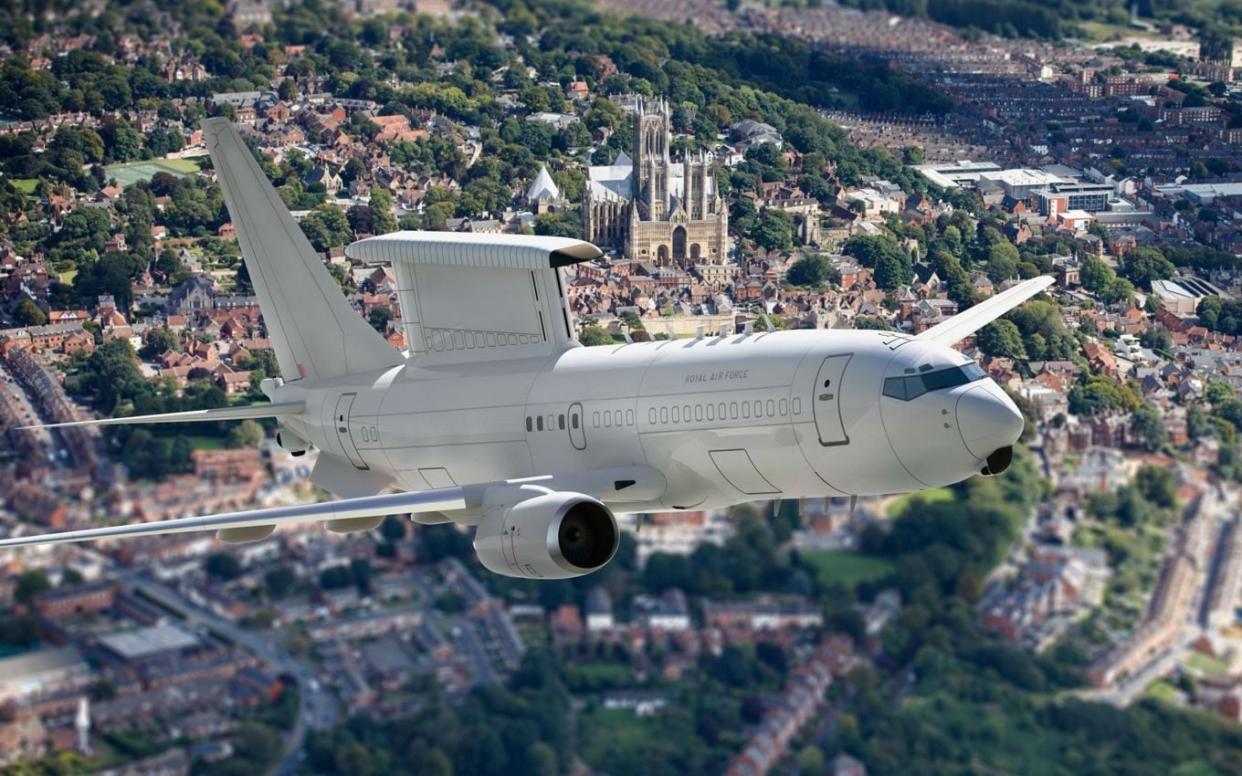Beijing spying fears as it emerges airframes of new MoD spy planes were previously used by Chinese airlines

Ministers have been accused of risking national security by buying second hand Chinese 737 airliners to convert into new spy planes in a bid to save money.
The five E-7 Wedgetail aircraft costing £1.5billion have been ordered from Boeing to deliver the UK’s Airborne Early Warning and Control capability, from 2023 from RAF Lossiemouth in Scotland. Information gathered by E-7s would be used by the Armed Forces to keep watch on fighter jets or warships by enemy powers.
However the Government has admitted that two of the five new RAF Wedgetail spy planes were previously operated by commercial airlines in China.
Labour MP Kevan Jones, a member of Parliament’s security and intelligence committee which has oversight of the Security Services, said: “The Ministry of Defence is purchasing military equipment from a state opposed to UK interests, in order to save money.
“There are serious concerns with regards to the security of the airframe, which may be defective or actively sabotaged prior to transfer.
“This decision by the government represents a disturbing, and possibly historical, piece of misjudgement.”
Tom Tugendhat MP, the Conservative chairman of the House of Commons Foreign Affairs select committee, added: “No one’s travelling and planes are cheap, so why are we buying spy planes from a country that’s spying on us?
"Who knows what’s in the millions of nooks and crannies of a massive 737? We could just buy a plane from a trusted partner instead.”
Ministry of Defence sources insisted that "the aircraft were sourced via a broker from the commercial market and at no time was the end destination of the aircraft released to the vendors or known to the market through that process".
Defence minister Jeremy Quin defended the decision, insisting that the two second hand airframes will be stripped down and thoroughly checked for bugs that could have been put there by the Chinese.
Mr Quin said: "The safety and security of our personnel are our highest priorities meaning that it must be demonstrated that second-hand airframes, regardless of origin, meet our requirements.
"This might involve the airframes being stripped down, refitted and subjected to stringent security checks as required."
He added: “In common with all 737 Next Generation airliners, the first two airframes to be modified to become RAF Wedgetail AEW Mk1 aircraft were manufactured by Boeing in the United States.
“They were initially operated by commercial airlines based in China and Hong Kong, and were then acquired by Boeing from the commercial market via a broker.
“The use of second-hand airframes provides a significant schedule and cost benefit to the programme, which will enable this vital capability to be introduced sooner than would have been the case if new airframes had been manufactured."
A Ministry of Defence spokesman said: "Converting previously civilian-owned airframes for military use is commonplace and has no impact on the quality or capability of the aircraft.”
“The Boeing 737s will undergo comprehensive security checks before mission system equipment is installed.
“The sensible, cost-effective approach will enable this vital capability to be introduced sooner than would otherwise be possible.”
MoD sources said that the "use of previously-owned airframes is not unusual for military aircraft derived from civil aircraft, in this case the Boeing 737. It provides a cost and time-effective path to production".
They added: "The modification process that transforms a 737 into an E-7 Wedgetail is extensive, with the aircraft stripped back to the basic airframe.
"All the sensitive mission system equipment is installed new and does not originate from the ‘donor’ 737."

 Yahoo News
Yahoo News 
